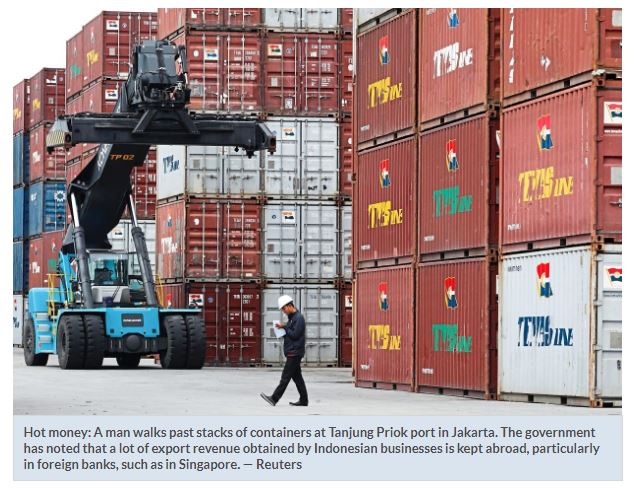Indonesia policy to keep 30% of exporters’ earnings onshore
Jakarta: The government has reaffirmed a target to bring at least 30% of exporting companies’ earnings into the country with a set of new policy tools to be introduced in March.
Coordinating Economic Minister Airlangga Hartarto said that based on data provided by the Finance Ministry and Bank Indonesia (BI), the 30% figure was achievable and would suffice to buttress the national currency.
He said the effort to get exporters to keep earnings onshore would apply to proceeds worth at least US$250,000 (RM1.1mil).
“According to the data we got, the 30% can be retained at home, and we will provide a transition period of three months,” Airlangga said at the 2023 Economic Outlook, an event hosted by CNBC Indonesia.
The government has noted that a lot of export revenue obtained by Indonesian businesses is kept abroad, particularly in foreign banks, such as in Singapore.
The country booked record trade surpluses last year, which supported the rupiah at a time when the currency, along with those of other emerging markets, was under pressure from rising interests rates in the United States.
Indonesia’s exports still exceeded imports in January, but there are concerns that that could change when global commodity prices come back down, which could weaken the rupiah.
In response, the government is in the process of revising Government Regulation No. 1/2019 on export revenue obtained from the shipment of natural resources and their derivative products.
That regulation is deemed inadequate to repatriate enough forex receipts, and the new rules are to include the manufacturing sector as well.
The government has promised tax incentives to convince exporters to store their earnings at home.
In addition, BI has promised a “competitive interest” rate for such funds, particularly if companies are willing to deposit larger amounts in Indonesian banks for longer periods of time. Indonesian banks, meanwhile, are set to receive certain fees as an incentivise to support the programme.
Josua Pardede, the chief economist of private lender Permata Bank, lauded the plan, saying on Feb 16 that the country had seen its currency weaken partly due to the limited amount of third-party foreign currency funds in the country. — The Jakarta Post/ANN


 English
English




